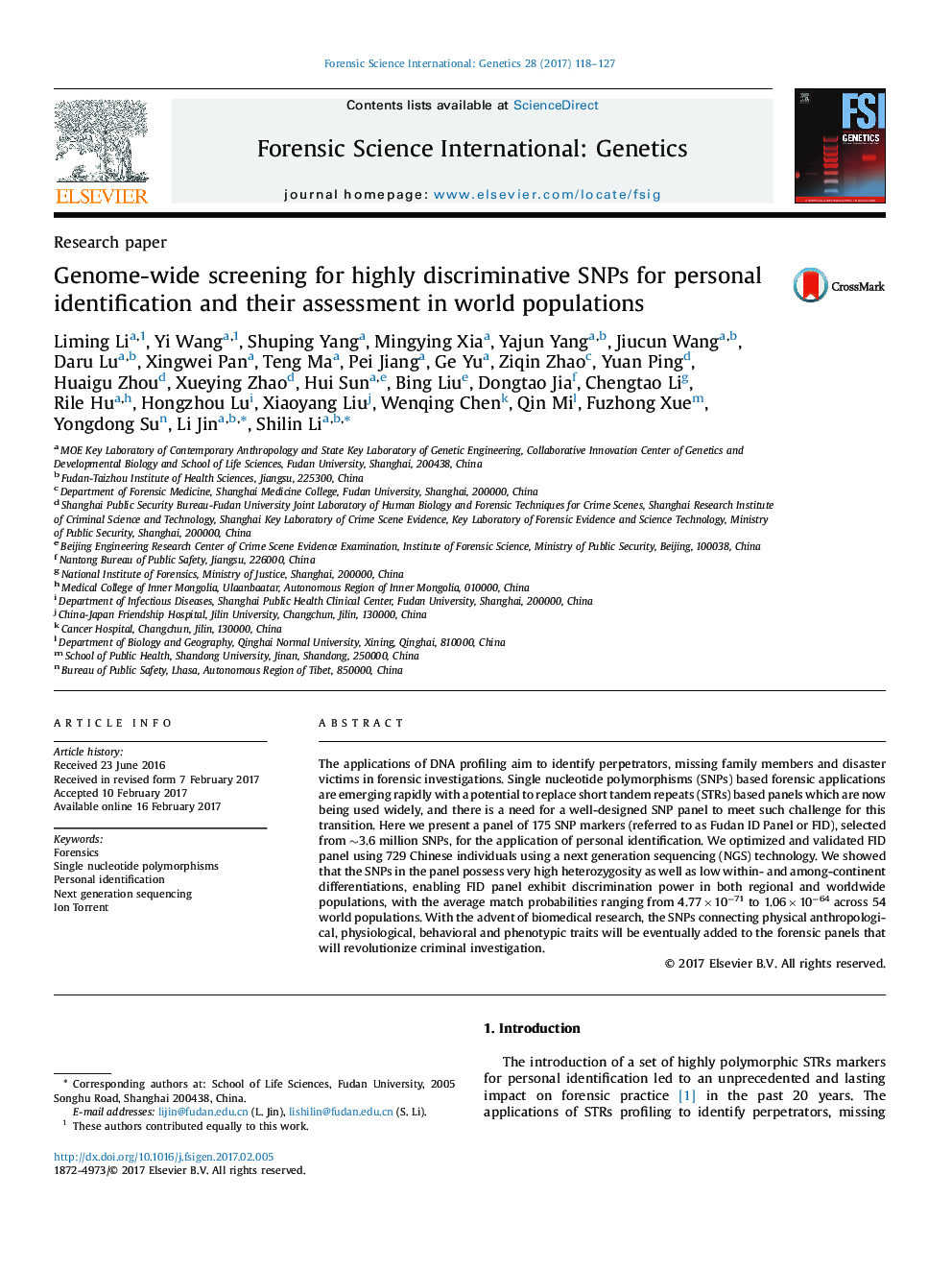| کد مقاله | کد نشریه | سال انتشار | مقاله انگلیسی | نسخه تمام متن |
|---|---|---|---|---|
| 6462828 | 1422150 | 2017 | 10 صفحه PDF | دانلود رایگان |

- We present a panel of 175 SNP markers for the application of personal identification.
- We optimized and validated 175 SNPs using 729 Chinese individuals using Ion Torrent.
- 175 SNPs possess very high heterozygosity as well as low within- and among-continent differentiations.
- The panel produced a high power of discrimination in both regional and worldwide populations, with the average match probabilities ranging from 4.77Â ÃÂ 10â71 to 1.06Â ÃÂ 10â64 across 54 world populations.
- The panel outperformed other forensic panels in match probability.
The applications of DNA profiling aim to identify perpetrators, missing family members and disaster victims in forensic investigations. Single nucleotide polymorphisms (SNPs) based forensic applications are emerging rapidly with a potential to replace short tandem repeats (STRs) based panels which are now being used widely, and there is a need for a well-designed SNP panel to meet such challenge for this transition. Here we present a panel of 175 SNP markers (referred to as Fudan ID Panel or FID), selected from â¼3.6 million SNPs, for the application of personal identification. We optimized and validated FID panel using 729 Chinese individuals using a next generation sequencing (NGS) technology. We showed that the SNPs in the panel possess very high heterozygosity as well as low within- and among-continent differentiations, enabling FID panel exhibit discrimination power in both regional and worldwide populations, with the average match probabilities ranging from 4.77Â ÃÂ 10â71 to 1.06Â ÃÂ 10â64 across 54 world populations. With the advent of biomedical research, the SNPs connecting physical anthropological, physiological, behavioral and phenotypic traits will be eventually added to the forensic panels that will revolutionize criminal investigation.
Journal: Forensic Science International: Genetics - Volume 28, May 2017, Pages 118-127